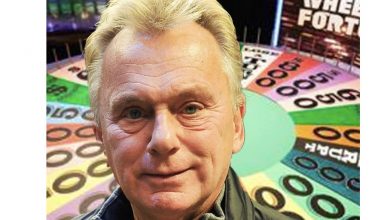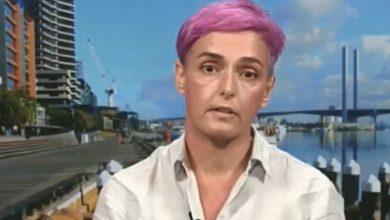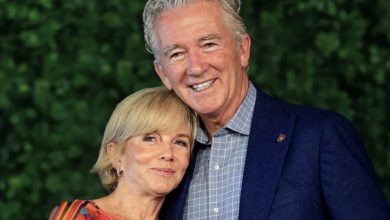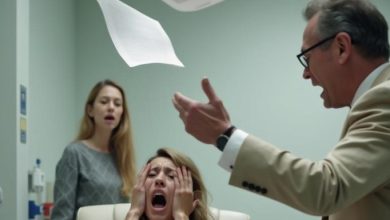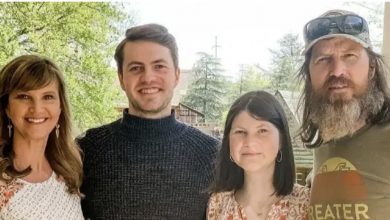“A Billionaire’s Secret Will Revealed the True Meaning of Family”
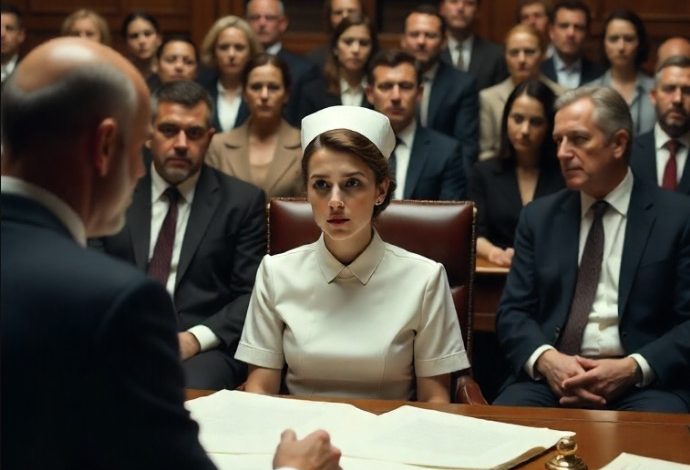
As a nurse caring for a billionaire in his final days, I thought I knew exactly where I stood. But at the reading of his will, when the lawyer’s eyes locked on me and he asked, “What is your full legal name?”… everything I believed about myself and my past began to unravel.
The will reading was supposed to be routine—at least for me. A quiet ending to a role I had already closed. My name was Madison Harris, and I had been hired to care for Theodore Spears, a billionaire who was as well known for his fortune as he was for his sharp temper. My presence at the gathering was nothing more than a formality, a polite acknowledgment of the months I had spent helping him when his family could not—or would not—be there.
So when the lawyer announced, in a steady, practiced voice, that Theodore had left his entire fortune to a woman named Elizabeth Harris, my stomach twisted but my mind was calm. Elizabeth wasn’t me. My name was Madison. I started to quietly gather my bag, preparing to slip out before the greedy relatives turned their eyes on me.
But then the lawyer’s gaze cut through the room and landed on mine. He stopped speaking, the room falling quiet as he straightened the papers in front of him. His voice rang out, sharp and deliberate.
“Miss Harris,” he said. “What is your full legal name?”
The world seemed to tilt under my feet. And to understand why, I have to start at the beginning—back to the day I first met Theodore Spears.
Meeting Theodore Spears
I had been warned. My supervisor Janet had called me one evening, her tone heavy.
“Madison,” she said, “this one isn’t going to be easy. He’s already gone through six nurses in four months. They quit or they were fired. He’s impossible to please.”
“Impossible how?” I asked cautiously.
“He’s demanding, critical, and doesn’t follow instructions. The last nurse said he threw a glass of water at her.”
I should have refused. I was already exhausted, stretched thin between my shifts at the hospital and side work to pay my bills. But Janet also mentioned the pay—double my usual rate. That kind of money could give me breathing room for the first time in years.
“I’ll meet him,” I said finally.
The Spears mansion was exactly what you’d expect from a man like Theodore: enormous, intimidating, and filled with silence that pressed on your shoulders. The housekeeper, Mrs. Clark, guided me through endless hallways lined with priceless art.
“He’s in his study,” she said. Her voice was clipped. “Don’t expect him to make things easy.”
When I entered, Theodore was by the window in a leather wheelchair, thin but still somehow commanding. His eyes were sharp, hard.
“Another one,” he rasped. “How long do you think you’ll last? The record is three weeks.”
I pulled up a chair, refusing to be intimidated. “That depends,” I said evenly. “How long do you plan on needing me?”
A flicker of surprise crossed his face.
“The doctors say six months,” he said bluntly. “Pancreatic cancer. There’s nothing left to do but wait.”
“I’m sorry,” I said quietly.
He gave a dry laugh. “Sorry? I’ve built an empire. I don’t fear dying. What I fear is dying alone. And trust me, my so-called family will only come when the vultures smell the end.”
I didn’t flinch. “Then let’s take it one day at a time,” I replied. “I’ll do my job. You do yours. Deal?”
His lips twitched into something close to a smirk. “We’ll see.”
Beneath the Armor
Over the weeks that followed, I learned that Theodore’s harsh exterior was a shield. Beneath it was loneliness, regret, and a man who had spent his life building wealth while neglecting love.
“I thought I’d have time for family later,” he told me one afternoon as I adjusted his medication. “Later never came.”
He was fascinated by my simple life. I told him about growing up with a single mother, about my tiny apartment, about the joy I found in little things like a warm cup of coffee after a long shift.
“You’re content with so little,” he said once, wonder in his voice.
“I have enough,” I answered. “That’s all anyone really needs.”
Slowly, he began asking about my past. My mother, who had died two years earlier. My absent father, a ghost I had never known. My mother’s maiden name, the small town where she grew up, the year she left. I thought it was just an old man’s curiosity.
I didn’t realize he was piecing together a story I didn’t know was mine.
The Niece Named Elizabeth
As his health declined, Theodore often spoke of regrets. But one name surfaced more than any other: Elizabeth.
“My sister Willow’s daughter,” he murmured one night, his eyes distant. “Elizabeth Harris. I lost her decades ago. She disappeared from my life, and I never found her again.”
His voice always softened when he said her name.
“I want my fortune to go to someone who will use it well,” he told me. “Someone who isn’t just waiting for me to die. Someone like her.”
At the time, I thought little of it. Just a dream of a dying man.
Three days later, Theodore passed away, his frail hand in mine. His final words were simple: “Thank you… for seeing me.”
The Reading of the Will
The room was packed with relatives I had never seen before. Some dabbed at their eyes, though their grief looked as rehearsed as a stage play. Others whispered behind their hands, already speculating about money.
I sat in the back, small and invisible.
The lawyer, Charles Hill, read through the smaller gifts: money for staff, donations to charities, keepsakes left to loyal employees. Then he came to the main inheritance.
“The remainder of the estate,” he said, “including all controlling interest in Spears Industries, valued at over four hundred million dollars… will go to his beloved niece, Elizabeth Harris.”
Gasps. Protests. Relief. The room buzzed like a hornet’s nest. A lost niece meant no one here had won, but it also meant they might fight for scraps later.
I stood to leave quietly, disappointed that even after all those months, my name had not been mentioned.
But then Mr. Hill raised his voice. “Miss Harris,” he said. “Please stay seated.”
The room fell quiet. Dozens of eyes turned to me. My pulse raced.
“Miss Harris,” he continued, “what is your full legal name?”
The Truth Revealed
“My full name?” I stammered. “Madison… Elizabeth Harris.”
The room exploded in whispers.
“And your mother’s name?”
“Elizabeth Jones. Her mother was… Willow.” My voice cracked as the pieces slammed into place. “Willow Spears.”
Gasps filled the air. The relatives gaped at me like I had grown another head.
Mr. Hill smiled gently. “Yes, Miss Harris. You are the Elizabeth your uncle spoke of. He confirmed it before his death.”
He handed me an old photograph. A young woman with my exact eyes stood beside a younger Theodore, both smiling. On the back, in faded ink: Willow and Teddy. Best friends forever.
I pressed a trembling hand to my lips.
Mr. Hill went on. “Your uncle suspected from the moment he met you. He requested a DNA test early in your employment. The results confirmed it. But more than bloodlines, what mattered to him was your character. He tested you without telling you. And you passed. You showed him kindness, patience, and honesty. That is why you inherit everything.”
A New Legacy
Relatives shouted, some threatening to contest the will. Mr. Hill silenced them with a final instruction from Theodore: a video recording.
On the screen, Theodore appeared frail but determined.
“My relatives will be angry,” he said. “But my fortune belongs with the person who showed me real family. Elizabeth Madison Harris, you are my niece. You are my legacy. Use this gift well.”
The room went silent. No one could argue with a dead man’s words.
Moving Forward
Six months later, the Spears mansion was unrecognizable. The grand halls had been transformed into the Theodore Spears Community Health Center, offering free clinics and affordable care. His art collection had been sold to fund scholarships for nurses. Properties once used for luxury were now homes for families in need.
Mrs. Clark, once the housekeeper, now ran the clinic’s daily operations.
“He would be proud,” she told me as we watched children leaving with their parents after a check-up.
I smiled, tears filling my eyes. “I hope so.”
That night, I opened the photo album Mr. Hill had given me, filled with pictures of my mother as a child, my grandmother Willow, and Theodore smiling beside them. For the first time, I felt a connection to a family I had never known.
I had walked into his house as Madison Harris, a nurse hired to care for a difficult man. I left as Elizabeth Harris, his heir. But more than that, I left as the person he had seen in me all along: someone who understood that kindness matters more than money.
He had given me more than wealth. He had given me belonging, purpose, and the chance to carry forward a legacy built not on greed, but on compassion.
And as I locked up the clinic that night, I whispered a promise into the quiet halls. “I’ll make you proud, Uncle Theodore.”



